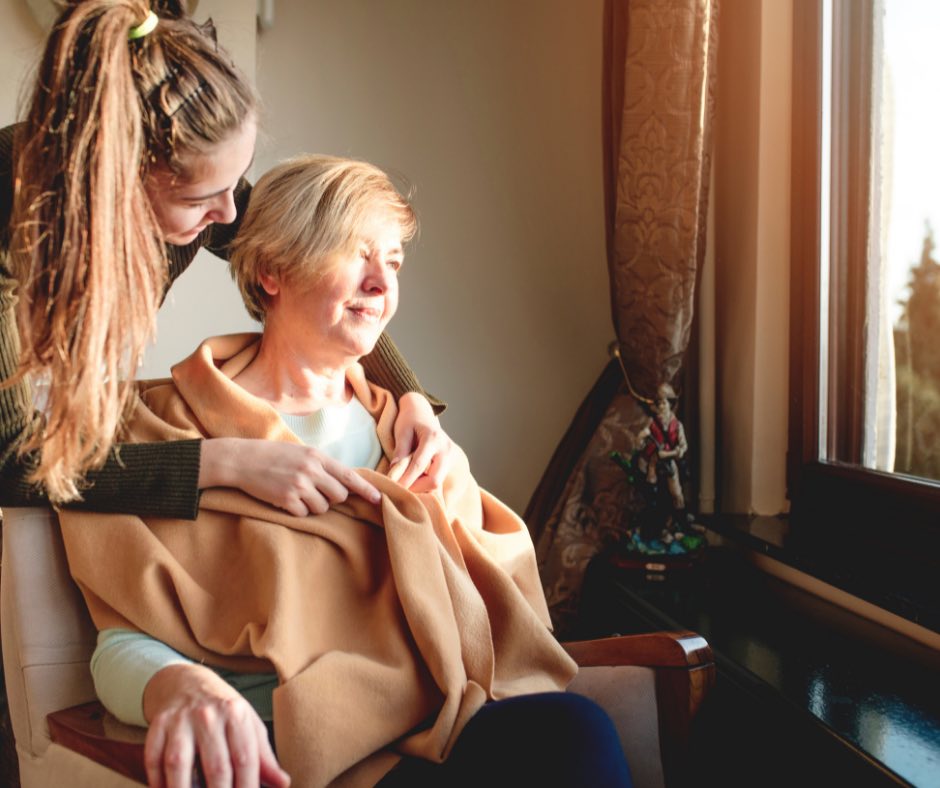Dementia is progressive, which means the person with the condition will require more care and support as time goes on. Being a caregiver to your loved one is not easy and at some point, you may feel burned out. It can become more demanding as symptoms get worse. If you are a family member or caregiver, it may become difficult to decide at what point your loved one needs 24-hours care. Homecare can be a great relief and take the weight of your shoulders.
Common questions you may ask are:
- When is the right time for someone with dementia to receive 24-hour care?
- How do you make this decision?
- Who should make this decision?
These are tricky and tough decisions to make, both for practical and emotional reasons. On this page, we have shared signs that will aid in determining the right time to hire a professional caregiver.
What are the signs?
Aggressive Behaviour
Physical or violent aggression frequently occur as a person’s dementia progresses. Reasons for the person’s behaviour could include memory loss, language or orientation problems, pain or discomfort that they are unable to communicate, their physical surroundings, a sense of being out of control and frustration and confusion at not being able to do things. Overall this can be very distressing for the person and those around them.
Caregiver Stress
Giving care to dementia people is not easy. The overwhelming needs of the loved one can make the caregiver frustrated and stressed. Early symptoms of caregiver strain include anger, anxiety, social withdrawal, exhaustion, depression and denial. If you feel that you have little to no support for yourself then it is time to get a professional caregiver.
Home Safety
It is important to consider your loved one’s health and their ability to care for them. As your loved ones’ dementia progresses, they are prone to domestic accidents such as falls, trips and overall accidents around the home, if you are not around. This is a sign that they will need constant monitoring to prevent this from occurring. 24-hour care will become integral for home safety.
Forgetfulness
People with dementia experience memory loss which gradually increases with time and starts interfering with daily life activities. This is because dementia is caused by damage to the brain which can affect areas of the brain involved in creating and retrieving memories. The person may forget daily chores or not pay attention to their hygiene. As memory loss becomes more persistent, it may be time to hire a 24-hour professional caregiver.
Mobility
As dementia progresses, the person with Alzheimer’s will become unable to function and eventually lose control of movement. Dementia affects coordination and balance and the affected person may gradually lose their ability to walk, stand or get themselves up from the chair or bed. Wandering and becoming lost is common among people with Alzheimer’s disease. A person with dementia may wander because of many reasons including stress or fear or following past routines. The patient at this stage should not be left alone.
Sundowning
Sundowning is a term used for changes in behaviour that occur in the evening, around dusk. Some people who have dementia experience a growing sense of agitation or anxiety at this time. They may also experience sleeping problems or increased confusion, anxiety, pacing and disorientation. Sundowning can drastically affect the routine of the family and creates a distressful environment. If your loved one is showing symptoms of sundowning, it may be time to consider hiring a professional caregiver.
Why choose Cavendish Homecare?
As one of the leading providers of dementia homecare in the UK, we pride ourselves on offering superior levels of support as and when it is needed. Our nurses and carers are trained to support those living with dementia and can support loved ones on how to care for them. We work with dementia organisations such as John’s Campaign to ensure that family and friends are included every step of the way to ensure the highest quality care for the client and peace of mind for their loved ones.
If you would like to enquire about our dementia care, contact us on, 02030085210 or email us at info@cavendishhomecare.com.
About the Author…
Misha Zemkova
Operations Assistant
As a volunteer at North London Action for the Homeless, Misha stands out for her exceptional ability to connect with people through active listening and meaningful dialogue. With seven years of invaluable experience as a Team Leader and Key Worker for adults with diverse learning disabilities, including cerebral palsy, dementia, Down syndrome, and brain injuries, Misha brings extensive experience and a deep understanding of caring for individuals with unique needs.
Now a pivotal member of the operations team at Cavendish Homecare, Misha actively supports Nurse Managers and the Bookings team in delivering high-quality care. She has demonstrated outstanding commitment to supporting charity partner Cruse Bereavement through events such as the Virtual TCS London Marathon and Light up the Night.

 Back
Back